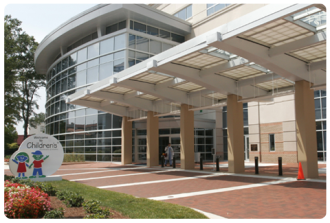The Georgia measles scare that stemmed from an infected infant arriving here from overseas is apparently at an end, with no further spread of the disease.
Earlier this month, state health officials said they identified 35 people – most of them children – as susceptible to getting measles from the infant who was hospitalized in Atlanta for the disease.
The baby arrived at Children’s Healthcare of Atlanta at Egleston with measles in early February. Officials said the child left the Central Asian nation of Kyrgyzstan on a flight and eventually landed in Atlanta.
“There are no known secondary cases of measles connected to the first case of measles in the infant from Kyrgyzstan,’’ Nancy Nydam, a spokeswoman for the Department of Public Health, said Friday.
Friday was the last day of the incubation period for potential secondary cases, she said. The incubation period of measles is seven to 21 days.
There are no known new cases of measles in Georgia either, she said.
The infant was discharged from the hospital earlier this month and is believed to be doing fine, Nydam said.
Public health officials contacted 250 people overall in the wake of the arrival of the infant.
Of the 35 considered susceptible to measles, a large number were children. These people either had not been immunized against the measles or have compromised immune systems.
The infant was the first confirmed case of the measles in Georgia in three years.
Kyrgyzstan, a relatively remote and sparsely populated nation, has had “a significant measles outbreak,’’ Dr. Brenda Fitzgerald, commissioner of Public Health, said at her agency’s board meeting earlier this month.
The Atlanta case was not connected to the recent outbreak of measles that originated at Disneyland in Southern California.
The CDC reports that as Feb. 20, 154 people from 17 states and Washington, D.C., were reported to have measles this year. Most were linked to the Disneyland outbreak.
Measles is highly contagious. The respiratory disease, caused by a virus, spreads through the air through coughing and sneezing.
To prevent measles, children (and some adults) should be vaccinated with the measles, mumps, and rubella (MMR) vaccine, the CDC says. Two doses of this vaccine provides 97 percent to 98 percent immunity, the highest rate for any immunization currently offered.
Children should be given the first dose of MMR vaccine at 12 to 15 months of age. The second dose can be given four weeks later, but is usually given before the start of kindergarten at 4 to 6 years of age.
In Georgia, all 35 or their families were advised to get an MMR or an IgG test for measles exposure.
Doctors at Children’s Healthcare placed the child in an isolation room upon arrival and activated other control measures to limit exposure.
The measles outbreak this year has ignited a debate about requiring parents to have their children immunized.
A recent CNN poll found that nearly 8 of 10 Americans believe parents should be required to vaccinate their healthy children against preventable diseases such as measles, mumps, rubella and polio.
If the children are not vaccinated, most agree the child should not be allowed to attend public school or day care, CNN reported.
The anti-vaccine movement, which is relatively small but cuts across philosophical and ideological lines, has been criticized by medical authorities, who say the rise in measles and other vaccine-preventable diseases is being fueled by people who opt not to vaccinate.
All U.S. states allow medical exemptions from vaccines, and all but two allow religious exclusions. Nineteen states permit vaccination exemptions for philosophical reasons, but Georgia is not one of them, WABE reported recently.
Public Health said 98 percent of Georgia’s enrolled kindergartners have received the recommended vaccinations.


